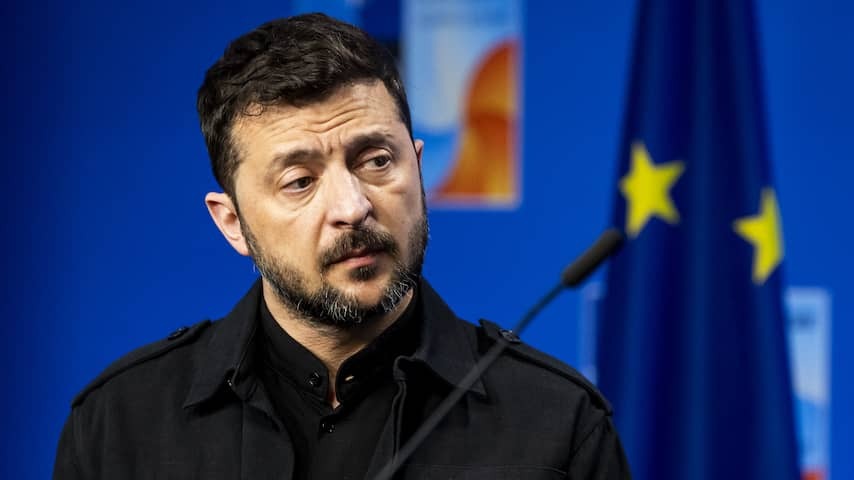
Ukraine seemed to be the most important security issue leading up to the NATO summit. But the escalation between Iran and Israel and the American involvement in that conflict are pushing Russian aggression into the background. NATO chief Mark Rutte is doing everything he can to prevent that.
“Let’s address the elephant in the room: Ukraine,” the interviewer said to Rutte on Tuesday morning. Apparently, Ukraine has been relegated to ‘the elephant in the room’ at the NATO summit.
That’s a problem. At least for Ukraine and everyone who wants to support the country in the war with the Russians. Which is virtually everyone at the NATO summit.
How do you ensure that attention is focused solely on this war when the world is also ablaze elsewhere? Such as in the Middle East, for example, between Israel, the United States, and Iran.
Since Russia started the war, NATO has stood firmly behind Ukraine. By expressing support and sending defense materials. Also for the future.
Hoping that Zelensky gets enough ‘facetime’
However, it is becoming increasingly difficult to maintain focus now that other hotspots are also demanding attention. Andrii Sybiha, the Minister of Foreign Affairs of Ukraine, hopes that his president Volodymyr Zelensky gets enough “facetime” in The Hague.
Rutte tried to guarantee that attention and support from NATO wherever he could. “If we are unable to deal with the Middle East and Ukraine at the same time, we shouldn’t be in politics,” he said on Tuesday morning.
You might expect that from politicians, but the waning public attention and, consequently, the sympathy for the Ukrainians is a real problem.
‘War in Gaza was very convenient for the Russians’
Not only the conflict between Israel and Iran is absorbing attention. The ongoing war in Gaza is logically doing so as well. “The war in Gaza was very convenient for the Russians,” Rob Bauer, former top military official at NATO, recently told NU.nl.
“After a week or two, the major media teams from CNN and BBC were told: pack up and move from Ukraine to Gaza, because that’s where the action is now. As a result, people are hearing less and less about Ukraine.”
On the first day of the NATO summit, one politician after another is trying to keep the focus on Ukraine. “I am convinced that there is broad support for Ukraine even after the elections,” said outgoing minister Caspar Veldkamp on Tuesday at the NATO summit. “That support will only grow. I have every confidence in that.”
John Healey, Minister of Defense of the United Kingdom: “Putin wants our attention to slip away. We must not let that happen.”
‘Help us so that our children can go to school safely’
Meanwhile, Rutte emphasized on Monday that Russia is still the biggest threat to security despite everything that is happening in the world. He also makes it known wherever he goes that NATO’s support for Ukraine remains undiminished.
Halfway through this year, the European NATO countries and Canada have already pledged 35 billion euros in support. Last year, that was 50 billion euros for the entire year.
Rutte said that on Monday at his first press conference, on Tuesday morning at the kick-off of the summit, on Tuesday afternoon during a discussion about defense spending, and a little later during a meeting with, among others, Zelensky.
For Ukraine, it is clear what is at stake. “Help us defend our airspace and our infrastructure so that our children can go to school safely,” said Rustem Umerov, the Ukrainian Minister of Defense, during a panel discussion on Tuesday.
“Our main goal is to keep fighting. Hold the line.”